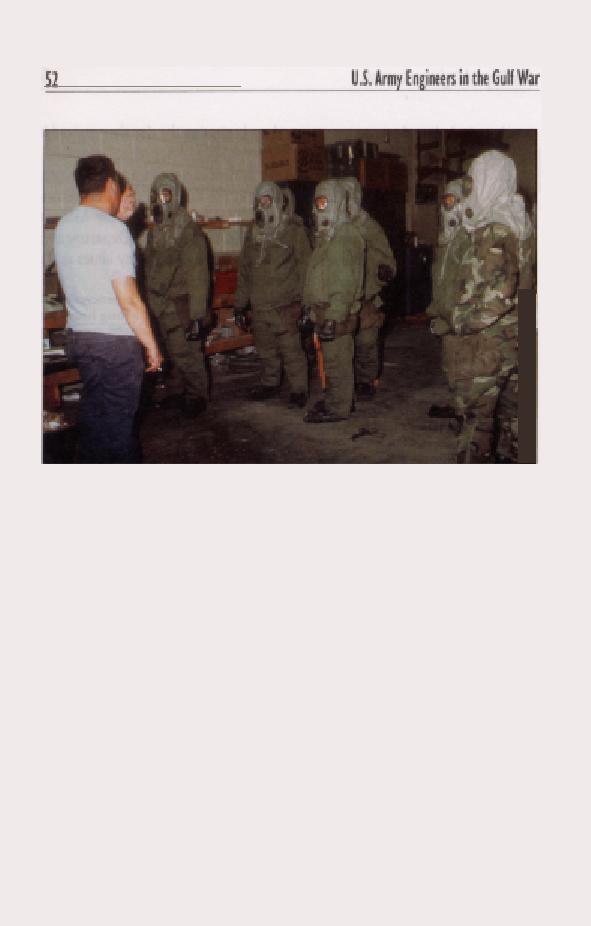
Corps volunteers received nuclear, biological, and chemical training and were issued protective
clothing at MEAPO headquarters in Winchester, Virginia, before deploying to Saudi Arabia.
Gulf had a designated family assistance officer to provide the families of
deployees with assistance and information. MEAPO established a toll-free
number and a weekly newsletter to give families current information.
In mid-October, representatives from the Army's directorate of civilian
personnel and the U.S. Total Army Personnel Command (PERSCOM) visited
MEAPO headquarters to learn how the Corps processed its civilians. The team
had already visited Aberdeen Proving Ground, where the Army Material
Command processed its civilian deployees. They were gathering information to
establish centralized operations to prepare overseas replacements at Fort
Jackson, South Carolina, and Fort Benning, Georgia. The team found that the
Corps' operation compared favorably and that the Corps' family assistance
program surpassed anything they had heard about or seen elsewhere.32
On 6 December, the personnel command presented the Corps and other
Army commands with its proposal for processing all Army civilians through
replacement centers in the United States. In mid-December, the deputy chief of
staff of the Army for personnel directed the Army `Materiel Command, Forces
Command, and others to process all Army civilians deploying for Operation
D E S E R T S H I E L D out of Fort Jackson beginning 22 January 1991. T h e
replacement centers would provide quarters, meals, and transportation to the
departure point; verify the deployment readiness of Army civilians; issue



 Previous Page
Previous Page
